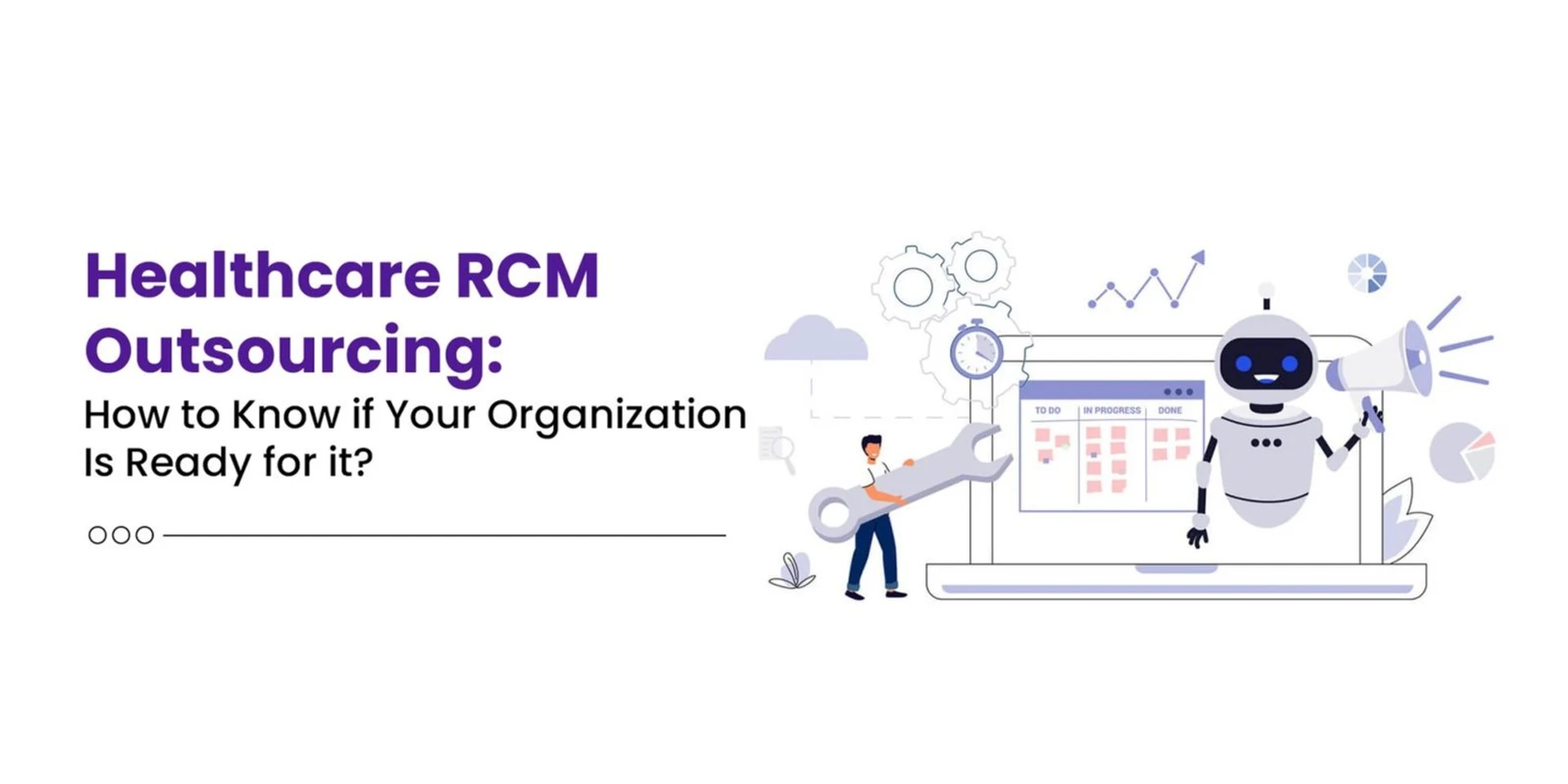Revenue cycle operations have become more challenging than ever due to constraining margins, evolving payment models, and increasing administrative burden, thereby putting all healthcare organizations at a crossroads.
As a result, more and more companies are now taking the strategic solution of revenue cycle management outsourcing. But the question here is what makes an organization ready for this radical change?
As much as outsourcing promises increased efficiency and better financial performance, healthcare organizations need to analyze certain factors before making this transformative leap.
Importance of RCM Outsourcing for Healthcare Organizations
Outsourcing RCM is one of the significant strategic moves for any healthcare provider as it ensures operational excellence and fiscal stability in today’s ever-evolving healthcare sector.
As we discussed earlier, healthcare RCM has become more complicated with increased touchpoints right from registration to final collection of the payment. Given the present scenario, healthcare organizations face many problems—understaffing, technology upgradation, and compliance issues, which affect the overall quality of the services provided to patients. Fortunately, there is a great deal of relief from administrative burden and a significant improvement in the financial performance if core RCM operations are outsourced.
RCM outsourcing mitigates the traditional RCM challenges with readily available support, latest technology, and proven expertise. It enables providers to reduce their cost of operations and improve their key performance indicators (KPIs) such as clean claim rates, collection ratios, and more.
RCM solution providers also bring industry best practices, specialized training programs, and continuous process improvement methodologies to the table, which are often difficult for healthcare organizations to develop internally. This expertise proves helpful when dealing with the complexity of insurance laws, medical coding standards, and payment models.
How to Know if Your Organization Is Ready for It?
Now that you know the importance of RCM outsourcing, here are seven critical steps you should take before considering it for your organization:
Financial Performance Analysis
First and foremost, you should know your current financial metrics and RCM performance indicators. This certainly includes the analysis of KPIs, such as days in A/R, clean claim rates, denial rates, and collection efficiency. If you notice that these metrics are constantly lower than that of industry standards even after optimizing all internal processes, there is a good chance that RCM outsourcing is the need of the hour for your organization.
Technology Infrastructure Assessment
The next step is to review the current technology in place. Check if it is seamlessly integrated with all the internal as well as external systems. Remember that modern RCM outsourcing facilitates smooth flow of data as well as seamless integration. Not to forget, EHR systems also have the ability to send data securely and standardize processes to share information.
If your technology infrastructure is outdated or in silos, it is high time for you to ask yourself if you need to upgrade internally or take advantage of an outsourcing partner with more advanced technology infrastructure.
Staff Readiness and Cultural Alignment
You should also assess your workforce’s preparedness for change and how they might accept outsourcing. Try to achieve buy-in throughout the organization—right from the senior leaders down to the frontline workers.
Most importantly, it is also necessary to consider the current work culture that would likely be impacted when working with partners outside the organization. Make sure that your workforce sees outsourcing as an opportunity for growth or improvement and not a threat. Also, both communication strategy as well as transition plan will be essential for effectively handling the change.
Resource Allocation Review
It is also equally crucial to analyze your organization’s resource allocation for RCM processes and determine which areas need outsourcing the most. These include analyzing expenses related to hiring, training, technology, and overheads. Once you have an idea, compare those with the outsourced costs and return on investment potential. This would help you to decide which RCM tasks need to be outsourced for delivering improved patient care and achieving maximum satisfaction levels.
Compliance and Risk Management Preparedness
Your organization must also have an effective compliance and risk management framework prior to outsourcing. This may include policies about the protection of patient data, HIPAA, security protocols, and much more.
You have to determine whether the current procedure you have regarding risk assessment would be sufficient in overseeing and managing the outsourced partner. In addition to this, you also need to have necessary internal controls to ensure vendor compliance and regulatory requirements.
Strategic Alignment and Goals
You also need to figure out how the outsourcing arrangement would align with your organization’s strategic long-term plans. For this, you will need to establish clear goals for outsourcing such as certain performance metrics, cost-cutting targets, or quality enhancement objectives.
In simpler words, you should have an explicit vision in place for how an RCM solution provider would help your organization expand and grow or how it will further add value to scale up your operations and services.
Vendor Evaluation Capabilities
Last but not least, you must also assess your organization’s ability to effectively evaluate as well as select potential RCM outsourcing partners. This includes having clear criteria for vendor selection, understanding industry benchmarks, and knowing what questions to ask potential partners. Your team should be capable of conducting thorough due diligence, including reference checks, financial stability assessments, and technology compatibility evaluations. So, establish a structured process for vendor evaluation and selection before beginning the outsourcing journey.
Wrapping Up
Outsourcing RCM operations is a vital decision that one needs to be well prepared for. There is much more to successful RCM outsourcing than choosing the right RCM solutions provider. Internal readiness is significantly critical to organizational success as it helps healthcare providers to get the most out of this transformative move.
Honest self-assessment and appropriate strategic planning are the best initial steps for the outsourcing RCM journey. Any company that invests time to prepare, align internal stakeholders, and establish clear objectives has a much higher chance of positive output.
Remember that readiness is not about being perfect at every aspect but having a firm foundation and commitment needed for a successful transition into outsourced RCM operations.






